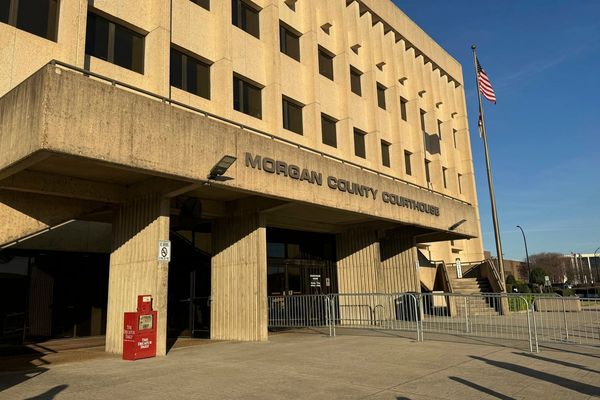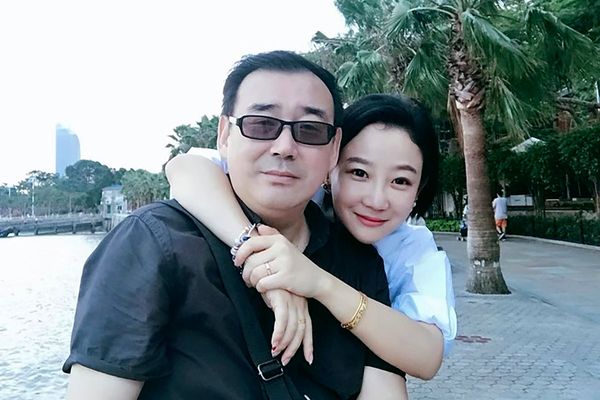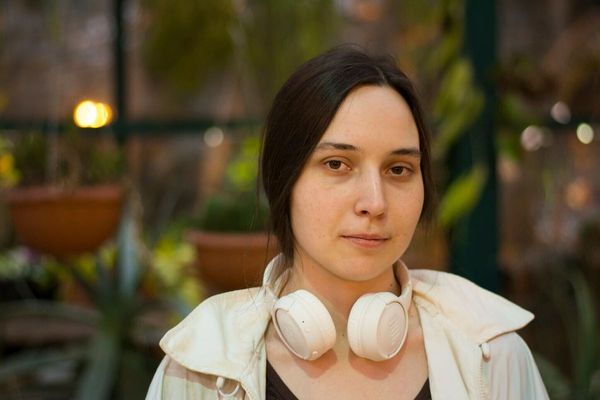Nov. 15--During his earliest steps toward becoming Chicago's next archbishop, Blase Cupich wasn't sure religious life was for him.
As a boy growing up in Nebraska, he and his siblings listened as their father urged them to consider a vocation in the Catholic Church. But he had figured he was the least likely among them to become a priest. He imagined a career in law and went out with girls.
The odds grew slimmer once his older brother Rich went into the seminary before him.
"I thought maybe I was off the hook," he joked during a Tribune interview in Spokane just weeks before moving to Chicago. He grinned. "I thought it was like those coupons, 'One per family.'"
That older brother and a younger brother left the seminary to pursue other careers, while Blase Cupich entered the seminary and stayed on the path to priesthood.
Even so, as he studied philosophy and theology, he dated women and entertained the idea of marriage.
His superiors then offered to send him to Rome to finish his clerical training, but even then he told them he wasn't sure he wanted to be a priest.
"I told the archbishop, 'I'm not ready to sign on the dotted line,' and he said, 'Well, we're not ready to ordain you. We think you have a vocation (to serve the church) and it will work out.'"
On Tuesday, Cupich, 65, will succeed Cardinal Francis George as leader of the nation's third-largest archdiocese. His is the first major appointment in the U.S. by Pope Francis.
Cupich and the pope have never met. But Cupich, a charismatic clergyman and grandson of Croatian immigrants, embodies the themes of the Francis papacy. Colleagues, friends and family say his emphasis on social justice, his openness to change and the background he shares with his flock might explain his elevation. Could he perhaps steer American bishops in a new direction -- away from a dogmatic approach to church teaching and toward a more pastoral ministry?
In a series of conversations during his last days in the Diocese of Spokane, Cupich (pronounced SUE-pitch) discussed the upbringing that shaped him, how he will take advantage of his higher profile and where he stands on social issues gnawing at the church.
"The church can challenge society, but society also challenges the church," Cupich said, surrounded by boxes already packed to be shipped to his new home. "That's good. We should be humble enough to be able to accept that."
The third of nine children born to Blase and Mary Cupich, Blase Joseph Cupich was born in Omaha, Neb., on March 19, 1949 -- the Feast Day of Saint Joseph, the husband of the Virgin Mary. His parents named him for his now-deceased father and late grandfather, who in his homeland of Croatia pronounced it "Blahj."
Young Cupich grew up attending south Omaha's Sts. Peter and Paul parish, in a building his grandfather helped finance in the early 1900s by soliciting donations door to door. The future archbishop went to grade school there as well. A new building went up on the same site in 1967.
His father, a U.S. postal worker, spent the mornings delivering mail and the afternoons as the grade school's part-time janitor, wiping down blackboards, sweeping floors and scrubbing toilets.
Cupich and his brothers always stayed to help. For additional income, his father also did odd jobs.
"We'd come home and we'd all have supper together and then many times, maybe three times a week, Dad would go out and pick up other work, like bartending for different parties. ... Then he'd come home, say around 10 o'clock, 11 o'clock, go to bed, get up early again at 5 and go to work," Cupich recalled. "They put food on the table, clothes on the backs and sent kids to Catholic schools -- all nine of us."
His parents also challenged their three oldest sons, starting in junior high, to get jobs, buy their own clothes and pay their own way to Omaha's Archbishop Ryan High School, especially since they had six other mouths to feed.
Church was a cornerstone of the Cupich household. "A second family," Cupich said.
The family's first home, at 36th and X Street, was just five or six blocks from the church. Every week, each family member prayed for an hour in front of the church tabernacle, a receptacle containing the Eucharist or consecrated wafer that Catholics regard as the body of Christ. The children also learned Croatian folk dances that they later performed in traditional costume.
"In my family, my father said this to all of us: 'Whenever you think about the future, what you're going to do, don't put priesthood or religious life off the table,'" Cupich said. "Everybody has to consider it."
But in high school during the mid-1960s, Cupich was more interested in a law career. Public speaking came naturally, and he excelled at his studies. Known for his quick wit and wisecracks, he successfully ran for student council president, getting more votes than his opponent, a star athlete. And when homecoming and prom came along, he went with a date.
Nevertheless, the parish priest at Sts. Peter and Paul, Monsignor John Juricek, encouraged Cupich to give religious life a try.
Through his adolescence, Cupich had been captivated by the popular papacy of John XXIII, the reforms of Vatican II and the inauguration of John F. Kennedy, the nation's first Catholic president.
"There was a certain pride in people's faith," Cupich said of those years. "It was a very exciting time. We were swimming in Catholicism."
Cupich enrolled at St. John Vianney Seminary at age 18 and went on to earn a degree in philosophy from what is now the University of St. Thomas, a Catholic school in St. Paul, Minn.
He reluctantly accepted the offer to complete seminary in Rome and earn a second bachelor's, in sacred theology, from the Pontifical North American College. Bad news arrived shortly after he did. He received a postcard from an aunt in which he learned that his father had fallen ill.
Doctors would later diagnose him with Parkinson's disease.
The diagnosis forced the elder Cupich to stop working, but it didn't blunt his concern for those less fortunate. He channeled his energy into the local chapter of the Society of St. Vincent de Paul, a Catholic charity dedicated to serving the poor.
Eventually, his father ran for office, incensed that the county south of Omaha declined to bring Meals on Wheels to the area. He campaigned on the single issue of nutrition for senior citizens.
He beat an incumbent county board member by a handful of votes. He served from 1977 to 1988, bringing Meals on Wheels to Sarpy County. He also helped establish the Eastern Nebraska Office on Aging.
Meanwhile, at age 65, Cupich's mother, Mary Cupich, learned how to drive.
"My folks were very practical," he said. "They were also kind of able to think outside of the box. They were not going to let circumstance paralyze them. They knew sometimes you just had to take some new initiative. I think they passed that on to all of us. ... If you don't find a way, you make one."
By 1975, a 26-year-old Cupich had earned an additional degree in theology, a master's from Pontifical Gregorian University in Rome. That same year, he also returned to Sts. Peter and Paul parish to be ordained.
"He wanted the family to be there with him," said Rich Cupich, recalling his brother's first Mass.
Cupich spent his first three years as the associate pastor of a parish in Omaha and a parochial high school instructor. He also served in leadership roles for the Omaha Diocese and helped men prepare for the priesthood at Creighton University, a Catholic college run by the Jesuits.
In 1981, Cupich was appointed secretary for the pope's diplomatic mission in Washington, D.C. While there, he completed a dissertation at Catholic University of America. He went on to become rector of Pontifical College Josephinum, a seminary in Columbus, Ohio. After a sabbatical in Rome, he served one more year as an Omaha parish priest.
After that series of high-profile appointments, Cupich got the first of three bishop assignments from the Vatican, each from a different pope.
In 1998, John Paul II assigned him to Rapid City, S.D. In 2010, Benedict XVI sent him to Spokane. In September, Pope Francis named him archbishop of Chicago.
Cupich insists he doesn't know why the pope chose him. The two have never met and probably won't, Cupich said, until he travels to Rome in June for the ceremony celebrating his post.
"He wouldn't recognize me in a lineup of criminals," Cupich joked.
He also contends that he wasn't given a direction or mandate. When he got the call from the apostolic nuncio, the Vatican's envoy to the United States, the only thing the nuncio wanted to know was whether Cupich would accept. He did, then went to dinner with friends and didn't breathe a word.
"They're going to point you to a place because they think you know how to do the job and you don't need a lot of hand-holding," Cupich said.
But he knows the Chicago archbishop serves a constituency much wider than the archdiocese's 2.2 million Catholics. The archbishop oversees Catholic schools, hospitals and social services that touch the lives of many Chicagoans, many of them not Catholic. In another sign of the church's reach, Mayor Rahm Emanuel has planned a welcome breakfast for Cupich on Thursday.
"The Catholic Church is an enormous footprint in Chicago, doing a lot of good," Cupich said. "That aspiration is felt by a lot of people -- that the church succeed -- because it will be good for society."
For decades, Catholics have looked to Chicago's archbishops as thought leaders for the American church. Already a prolific writer and frequent contributor to a national Catholic weekly magazine, Cupich said issues must pass a three-part test before he shares his perspective on them.
"Is what I have to say true? Does it have to be said? And do I have to say it?" he said. "I go through those questions for myself.
"I'm not the spokesman for the bishops," he added. "I'm just going to be the archbishop of Chicago. I am going to do it in unity with the other bishops. That's something I can't ignore."
He also doesn't want to ignore the needs of the faithful. So first he wants to listen.
He will spend his first three Sundays after the installation celebrating Mass in a cross section of parishes across the city -- St. Agatha in North Lawndale, a predominantly African-American parish; St. Agnes of Bohemia in Little Village, a primarily Latino congregation; and St. Hyacinth Basilica in the Avondale neighborhood, a spiritual center for the Polish Catholic community.
"I'm going to spend my time getting to know people -- parishes, situations, the organizations that we have," he said. "Catholic Charities, our schools, the work that we do in our hospitals, the various outreach programs -- to really be an encouragement."
Observers say Cupich was deeply engaged in Spokane, where in ways large and small he showed an ability to navigate the teachings of the church and the needs of an ever-changing flock.
When one church let parishioners move the kiss of peace to the start of the service, he looked the other way. He also helped mediate a controversy involving a Catholic university's speaking invitation for anti-apartheid activist and retired Anglican Archbishop Desmond Tutu, whose support for abortion rights and contraception offended some alumni.
But perhaps the best example of his down-to-earth leadership style was his approach to same-sex marriage in Washington state.
In 2012, he wrote a letter reiterating the church's definition of marriage as between a man and a woman, but making it clear that the church's opposition to same-sex marriage did not intend to show disrespect. The letter was read aloud by most priests across the diocese.
But the Rev. Patrick Baraza, a priest from Kenya who is pastor of St. Ann in Spokane, refused to follow suit out of consideration for his congregation. More notably, he never heard about it from his boss.
Baraza said that is Cupich's style. He listens to his priests and learns as he goes along.
"In a dialogue, people learn from one another," Baraza said. "That's exactly what Bishop Cupich is all about."
Cupich said it doesn't serve the church to condemn people for violating teachings and that persuasion should come after you meet people where they are in their own lives.
"It's easy to get lost in the world of ideas," he said, citing Pope Francis. "You can polarize people. You can group people into ideological camps in competing ways. That doesn't get you too far if it's not anchored to reality."
He looks to that Jesuit pope's compassionate approach to ministry as a guide and concedes that he and Francis think a lot alike.
"There is a synergy between the way Croatians approach life and the way Jesuits do," he said. "Croatians are very real about situations. We don't gloss over things. If there are issues to deal with, you deal with them."
mbrachear@tribpub.com
Twitter @TribSeeker







